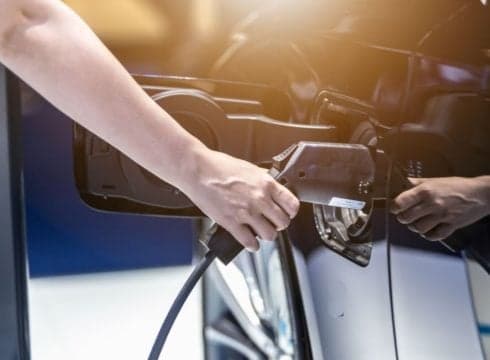The companies will be investing close to INR 30K-50K Cr over 8 years
Suzuki has partnered with automotive component manufacturer Denso and electronics giant Toshiba
It said to be the biggest lithium-ion battery manufacturing unit in the world
Inc42 Daily Brief
Stay Ahead With Daily News & Analysis on India’s Tech & Startup Economy
Venturing into the production of lithium-ion batteries and electrode, Japenese automobile major Suzuki Motors has formed a consortium with Japenese automotive component manufacturer Denso and multinational conglomerate Toshiba to set up a manufacturing unit in Gujarat. The batteries will be used to power electric vehicles (EV).
Though the investment figures have not been disclosed yet, according to media speculations the companies are likely to invest between INR 30K Cr to INR 50K Cr in phases over 8 years. However, the investment might fluctuate with regards to the global demand for EVs.
A state government official has confirmed the report saying that Suzuki will lead the partnership and the investment will be divided in the proportion of 50:40:10 between Suzuki, Toshiba and Denso.
The plant will be set up in Hansalpur in Gujarat and is said to be the biggest lithium-ion battery manufacturing unit in the world. This move is being considered as an attempt to tap into a huge potential market rising due to the EV push in India.
The companies are still in talks about the modalities of the memorandum of understanding (MoU), following which the consortium is expected to sign it. The Prime Minister’s Office (PMO) is reportedly keeping a close watch on the deal.
Push To Lithium-ion Batteries For EV Manufacturing
EV battery production and localisation of battery technology is a high priority area of the development. At present, nearly all EV in India are run on imported batteries. These batteries account for nearly 40% of the total cost of the electric car.
With the Indian government’s push to increase EV and its component production in India, the additional cost of imported EV batteries can be avoided. This will make EV more affordable in India.
As part of the National Mission on Transformative Mobility and Battery Storage, the government plans to set up up to 50 GwH factories, which can be used to power 1 Mn homes and 30K EVs. The initiative has been launched to push the transformation from internal combustion engine (ICE) vehicles to EVs.
Under the initiative, the government is also expected to launch a phased manufacturing programme to localise production across the EV value chain. The programme has already attracted various stakeholders, manufacturers and international players.
Last month, Tesla and China-based Amperex had shown interest in coming on board the government’s initiative. The two companies had planned to invest INR 50K Cr to build factories for the production of these batteries. Other stakeholders working on the localisation of EV components are Panasonic and Tata Group.
{{#name}}{{name}}{{/name}}{{^name}}-{{/name}}
{{#description}}{{description}}...{{/description}}{{^description}}-{{/description}}
Note: We at Inc42 take our ethics very seriously. More information about it can be found here.


